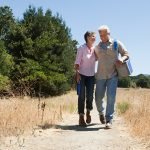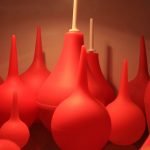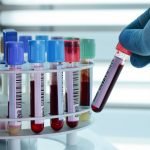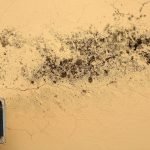Agaricus blazei Murrill: Immune System Ally; Cancer Foe
Ronald Steriti, NMD, PHD
For thousands of years, mushrooms have been used as food and medicine. The Greek physician, Hippocrates (460 BC—377 BC), considered the “Father of Medicine,” mentions fungi in his writings for use when treating chronic kidney disease. Although the ancient Greeks used only a few mushrooms, the influence of this use was felt throughout the ages in Europe. For the past century many scientists from Eastern European countries studied medicinal mushrooms and their effects on health, as a result of their use in folk medicine. The Chinese have been using mushrooms for over 3000 years or perhaps as far back as 7000 years. Chinese pharmacopoeia document over 100 different types of medicinal mushrooms used by practitioners of Traditional Chinese Medicine (TCM) for a wide range of ailments. The use of mushrooms also dates back hundreds of years in Japan.
The most known and widely used medicinal mushrooms are Reishi, Maitake, Shitake, Cordyceps, and Agaricus blazei Murrill (AbM). In Western Medicine, many clinically important drugs have been derived directly or indirectly from mushrooms. These include antibiotics, penicillin, hormones (progesterone), pain medication (morphine, cortisone), antifungal, and anti-cancer drugs. The first chemotherapy drug approved by the FDA in the 1980s was derived from a mushroom.
AbM, a Basidiomycete fungus, is native to the Atlantic Rainforest region in southeastern Brazil, where it has been part of area resident’s regular diet for generations. In the late sixties, researchers discovered a significantly low incidence of chronic illnesses among local people, including cancer, diabetes, and cardiovascular disease, leading them to consider AbM as a contributing factor. AbM samples were sent to the Pharmacological Department at Tokyo University and the National Cancer Center in Japan for further evaluation to determine its effect on cancer. The research primarily focused on anti-tumor properties of constituent, _-glucans along with pharmacological effects. The results of the research were presented at the Japan Pharmacological Association and the Japan Cancer Association in 1970.
It is widely held that cancer develops as a result of a weak immune system due to aging or other factors. Researchers seeking factors that enhance the immune system have focused increasing attention on AbM. Compared to the commonly used Asian mushrooms—Maitake, Reishi, and Shiitake, AbM contains larger quantities of polysaccharides, primarily _-d-glucans, and other unique components that have immune enhancing and modulating effects, and reduce hyper-reaction of the immune system, thus contributing to an enhanced equilibrium or homeostasis. Generally, the studies have revealed AbM’s immune-stimulating properties.
Overall AbM works as a highly effective preventive aid—maintaining health and promoting healing through immune system enhancement. The polysaccharides, and their derivatives increase phagocytes, natural killer cell and T-cell activity; stimulate production of interferon, interleukin-1 and cytokine production, which mobilize the immune cells resulting from bone marrow production.
Most AbM research studies have focused on cancer and have shown _-d-glucans (_-1,3 and _-1,6-glucan) to possess anti-mutagenic, anti-metastatic and anti-tumor effects due to immunological host-mediated mechanisms. The studies also demonstrate cytotoxic effects against various types of cancer, such as human ovarian and breast cancers. The World Health Organization estimates that about 1.2 million women develop breast cancer every year and it is the most common form of invasive female cancer. The most common form of treatment is radiotherapy, surgery and/or chemotherapy, but they have serious side effects that cause damage and discomfort to patients undergoing treatment. These side effects are greatly reduced, as well as cancer growth itself, through immunotherapy, even in last stage cancers by boosting the body’s own immune system to fight off cancer cells. The proteins, glycoproteins, polysaccharides and lipopolysaccharides found in mushrooms have these immune enhancing properties.
Immunotherapy is gaining worldwide attention in the scientific community due to promising results. This increased attention also is fueled by research showing poor chemotherapy outcomes in certain conditions. Research has shown that advanced breast cancers do not respond well to chemotherapy treatments, as tumor cells circumvent chemo-preventive drugs. Hormonal therapy for estrogen receptor (ER)-positive breast cancers have responded well, however, ER-negative cancers are more challenging due to their drug resistance.
Studies show that an abnormal expression of the enzyme aromatase can be considered a risk factor for breast cancer. The enzyme aromatase converts androgen to estrogen. Research shows that AbM suppresses aromatase activity. In a 2002 study by Dr. T. Mizuno of Japan, a prominent scientist studying the biochemistry of medicinal mushrooms, described a case of a breast cancer patient who had surgery and after seven years developed lung metastasis. This patient was given an AbM extract and after three months results showed complete recovery from cancer.
A recent study published in the International Journal of Gynecological Cancers showed that the use of AbM in conjunction with chemotherapy treatments, such as carboplatin and taxol, showed improved peripheral blood results, increased IgM and IgE values, and reduced nausea, fatigue and anorexia. Other studies suggest that AbM also reduces the side effects of cancer patients undergoing radiation treatments. A 2005 Japanese study on the antitumor effects of intratumoral injection of basidiomycetes preparations using an experimental mouse model and the “double grafted tumor system” shows that constituents extracted from AbM fruit bodies preparation cured primary tumor and inhibited the growth of metastatic tumors.
Ergosterol, another important AbM component, and in higher quantities than all other medicinal mushrooms, is a natural anti-angiogenesis substance shown to inhibit the production of substances that originate in the tumor. These properties stimulate neogenesis of the capillaries. By inhibiting the growth of the tumor through the circulatory system, it becomes smaller in size and consequently more responsive to chemotherapy and surgery. Ergosterol combined with _-d-glucan, account for innumerable immunotherapy successes.
Other tumor fighting components found in the AbM mushroom are: xyloglucan, acid heteroglucan, ribonucleic acid protein compounds and lectin, which augments macrophage activity. The natural steroids found in AbM have an anti-cancer effect, in contrast to chemically produced steroids, which may cause cancer. These natural steroids have been shown to be particularly effective in the prevention of uterine cancer. AbM is also rich in linoleic acid, which has antimutagenic activity.
As a general supplement, AbM is a nutritionally well balanced addition to a healthy diet. The mushroom contains valuable ingredients, such as essential amino acids, vitamins, minerals, vegetable proteins, anti-oxidants, enzymes, dietary crude fibers, natural sterols, triterpenes, saponins and immune stimulating polysaccharides—a total of 192 nutrients. It has no known side effects and toxicity studies have confirmed its safety. A widely used nutritional and therapeutic food supplement, AbM has been used in hospitals for many years as an adjunct therapy for cancer patients in Brazil, Europe, Japan and other Asian countries.
References:
Mizuno T. Medicinal Properties and Clinical Effects of Culinary-Medicinal Mushroom Agaricus blazei Murrill (Agaricomycedtideae) Review. International J of Medicinal Mushrooms. 2002(4).
Ley B. Medicinal Mushrooms for Immune Enhancement: Agaricus blazei Murrill. 2001. ISBN: 1-890766-15-1
Petrova R, Wasser S, Mahajna J, Denchev C, Nevo E. Potential Role of Medicinal Mushrooms in Breast Cancer Treatment: Current Knowledge and Future Perspectives. International Journal of Medicinal Mushrooms, Vol. 7, pp. 141 – 155 (2005)
Ahn WS, Kim DJ, Chae GT, Lee JM, Bae SM, Sin JI, Kim YW, Namkoong SE, Lee IP. Natural killer cell activity and quality of life were improved by consumption of a mushroom extract, Agaricus blazei Murill Kyowa, in gynecological cancer patients undergoing chemotherapy. Int J Gynecol Cancer. 2004 Jul-Aug;14(4):589-94. PMID: 15304151 [PubMed – indexed for MEDLINE]
Ebina T. [Antitumor effects of intratumoral injection of Basidiomycetes preparations] [Article in Japanese] Division of Immunology, Miyagi Cancer Center Research Institute. Gan To Kagaku Ryoho. 2005 Oct;32(11):1654-6.PMID: 16315899 [PubMed – indexed for MEDLINE]
Kimura Y, Kido T, Takaku T, Sumiyoshi M, Baba K. Isolation of an anti-angiogenic substance from Agaricus blazei Murill: its antitumor and antimetastatic actions. Cancer Sci. 2004 Sep;95(9):758-64. P MID: 15471563 [PubMed – indexed for MEDLINE]
Kuroiwa Y, Nishikawa A, Imazawa T, Kanki K, Kitamura Y, Umemura T, Hirose M. Lack of subchronic toxicity of an aqueous extract of Agaricus blazei Murrill in F344 rats. Food Chem Toxicol. 2005 Jul;43(7):1047-53. PMID: 15833380 [PubMed – in process]
Ohno N, Furakawa M, Miura N et al. Antitumor beta glucan from the cultured fruit body of Agaricus blazei. Biol Pharm Bull. 2001:24(7): 820-8.
Wasser SP. Medicinal mushrooms as a source of antitumor and immunomodulating polysaccharides. Appl Microbiol Biotechnol. 2002;60:258-274.
Lee YL, Kim HJ, Lee MS, et al. Oral administration of Agaricus blazei (HI Strain) inhibited tumor growth in a sarcoma 180 inoculation model. Exp Anim. 2003;52(5): 371-375.
Ito H, Shimura K, Itoh H, et al. Antitumor effects of a new polysaccharide-protein complex (ATOM) prepared from Agaricus blazei (Iwade Strain 101) “Himematsutake” and its mechanisms in tumor-bearing mice. Anticancer Res. 1997;17:277-284.
Kawagishi H, Inagaki R, Kanao T, Mizuno T. Fractionation and antitumor activity of the water-in-soluble residue of Agaricus blazei fruiting bodies. Carb Research. 1989;186:267-273.
Kim GY, Lee MY, Lee HJ, Moon DO, Lee CM, Jin CY, Choi YH, Jeong YK, Chung KT, Lee JY, Choi IH, Park YM.Effect of water-soluble proteoglycan isolated from Agaricus blazei on the maturation of murine bone marrow-derived dendritic cells. Int Immunopharmacol. 2005 Sep;5(10):1523-32. Epub 2005 Apr 1. PMID: 16023604 [PubMed – in process]
Machado MP, Filho ER, Terezan AP, Ribeiro LR, Mantovani MS. Cytotoxicity, genotoxicity and antimutagenicity of hexane extracts of Agaricus blazei determined in vitro by the comet assay and CHO/HGPRT gene mutation assay. Toxicol In Vitro. 2005 Jun;19(4):533-9. PMID: 15826811 [PubMed – in process
Kawamura M, Kasai H, He L, Deng X, Yamashita A, Terunuma H, Horiuchi I, Tanabe F, Ito M. Antithetical effects of hemicellulase-treated Agaricus blazei on the maturation of murine bone-marrow-derived dendritic cells. Immunology. 2005 Mar;114(3):397-409. PMID: 15720441 [PubMed – indexed for MEDLINE]
Kaneno R, Fontanari LM, Santos SA, Di Stasi LC, Rodrigues Filho E, Eira AF. Effects of extracts from Brazilian sun-mushroom (Agaricus blazei) on the NK activity and lymphoproliferative responsiveness of Ehrlich tumor-bearing mice. Food Chem Toxicol. 2004 Jun;42(6):909-16. PMID: 15110099 [PubMed – indexed for MEDLINE]
 Ronald Steriti, NMD, PHD is a graduate of Southwest College of Naturopathic Medicine and holds a doctorate in electrical engineering from the University of Massachusetts. Dr. Steriti has written several books and continuing education courses for health professionals, and has most recently published Nutritional Support for Chronic Myelagenous Leukemia in Alternative Medicine Review. Dr Steriti maintains a private practice in Naples, Florida and is a medical advisor and consultant to the nutrition industry.
Ronald Steriti, NMD, PHD is a graduate of Southwest College of Naturopathic Medicine and holds a doctorate in electrical engineering from the University of Massachusetts. Dr. Steriti has written several books and continuing education courses for health professionals, and has most recently published Nutritional Support for Chronic Myelagenous Leukemia in Alternative Medicine Review. Dr Steriti maintains a private practice in Naples, Florida and is a medical advisor and consultant to the nutrition industry.










